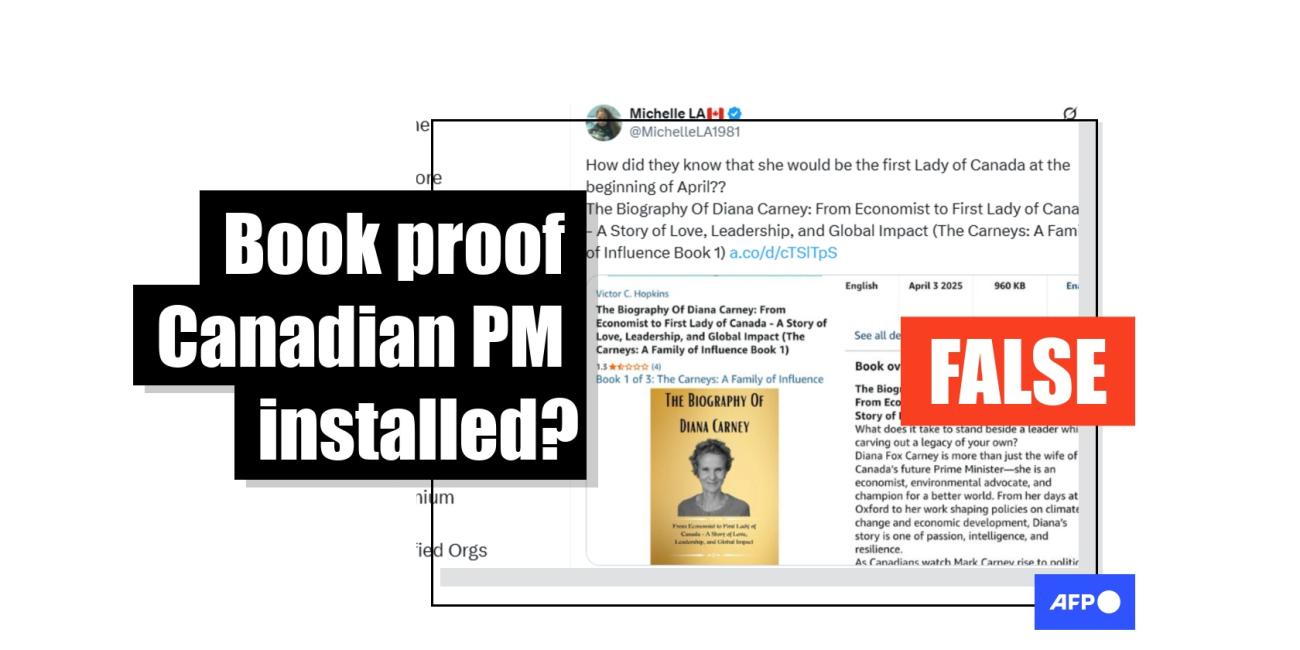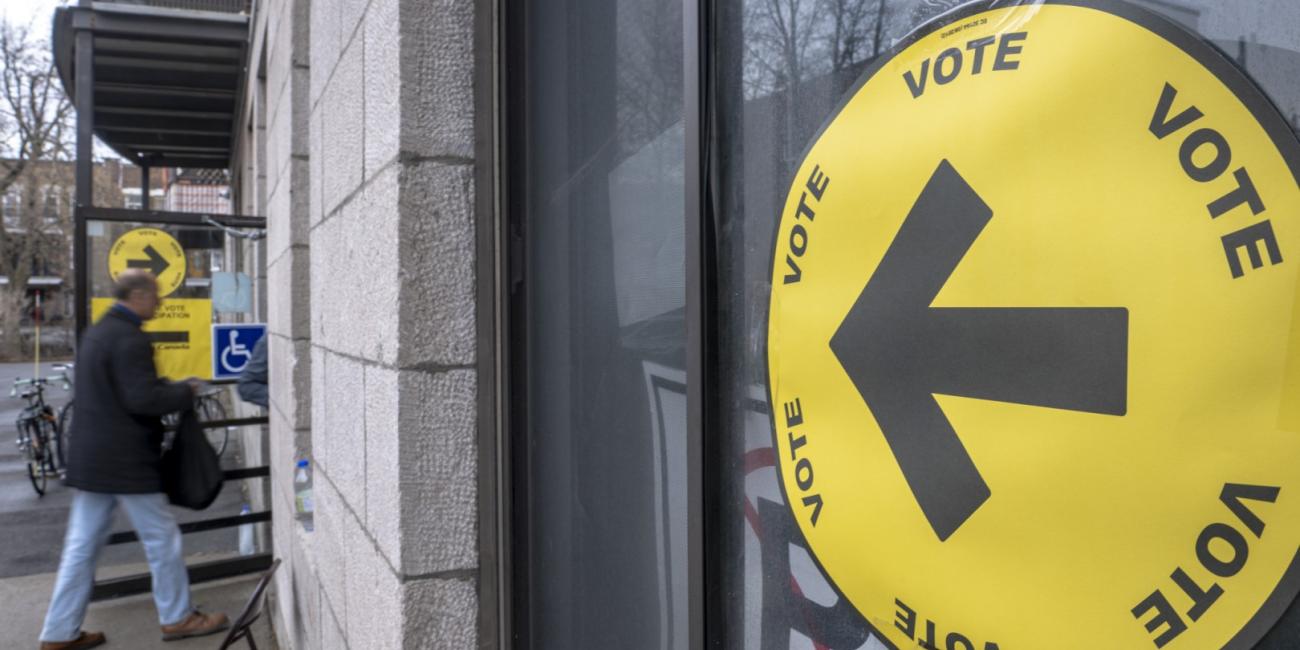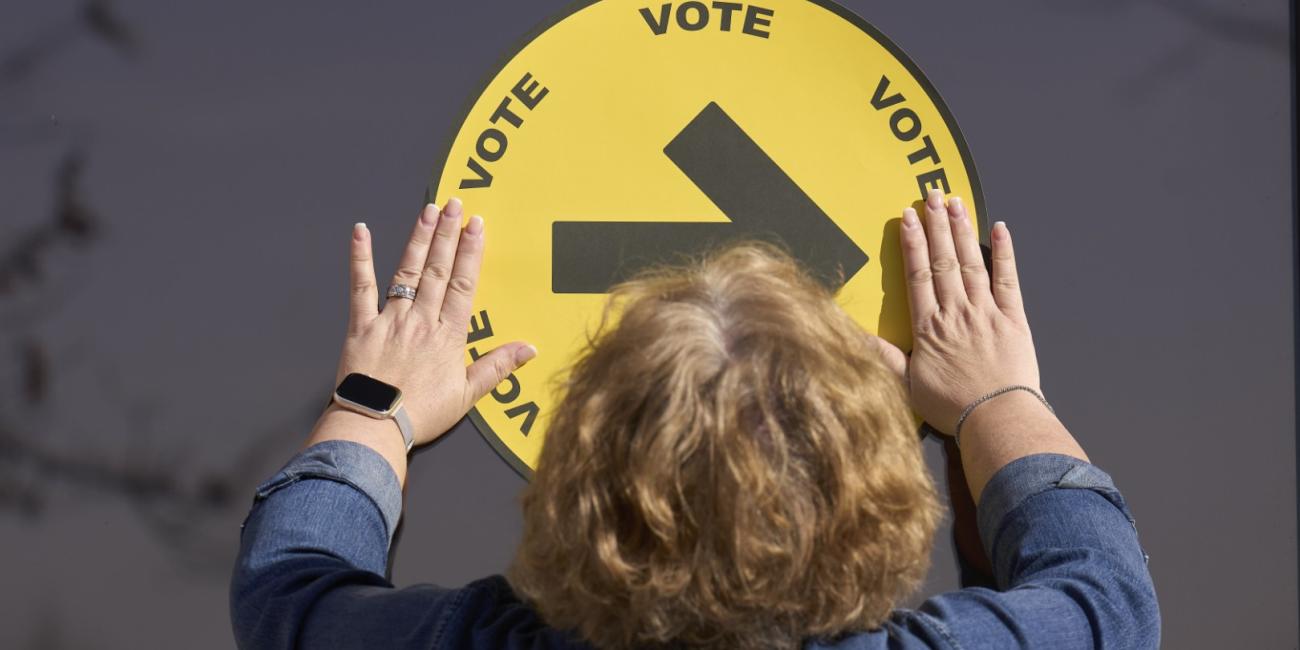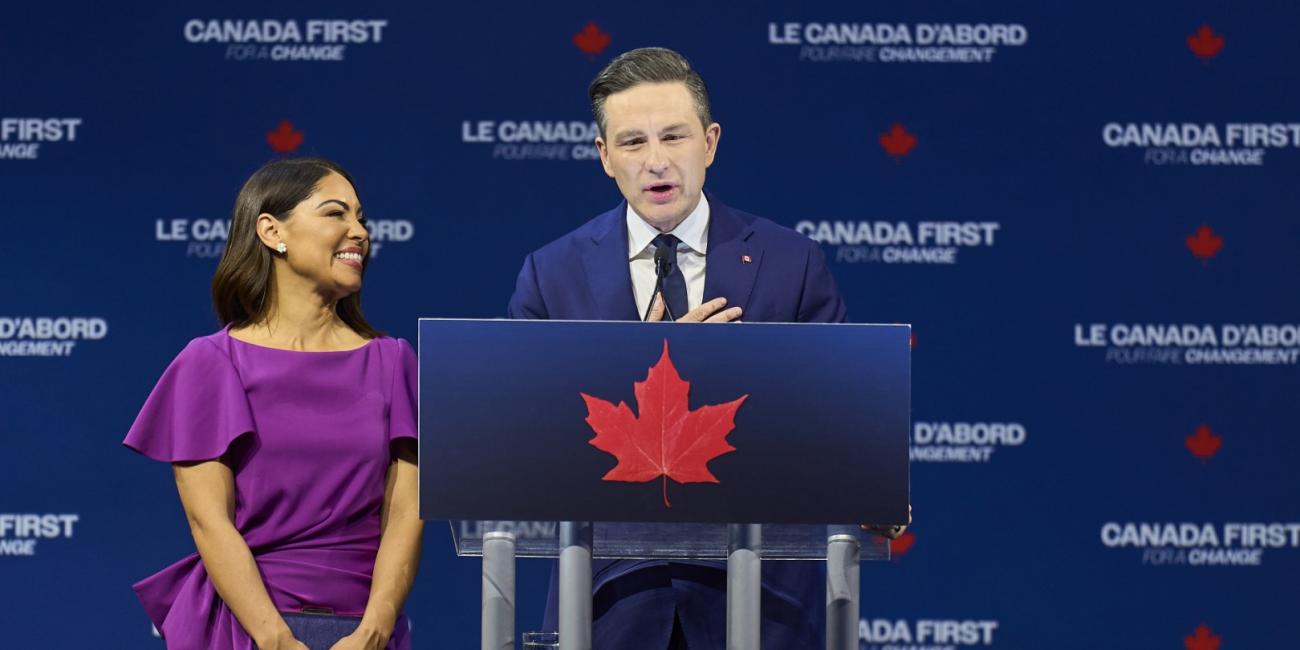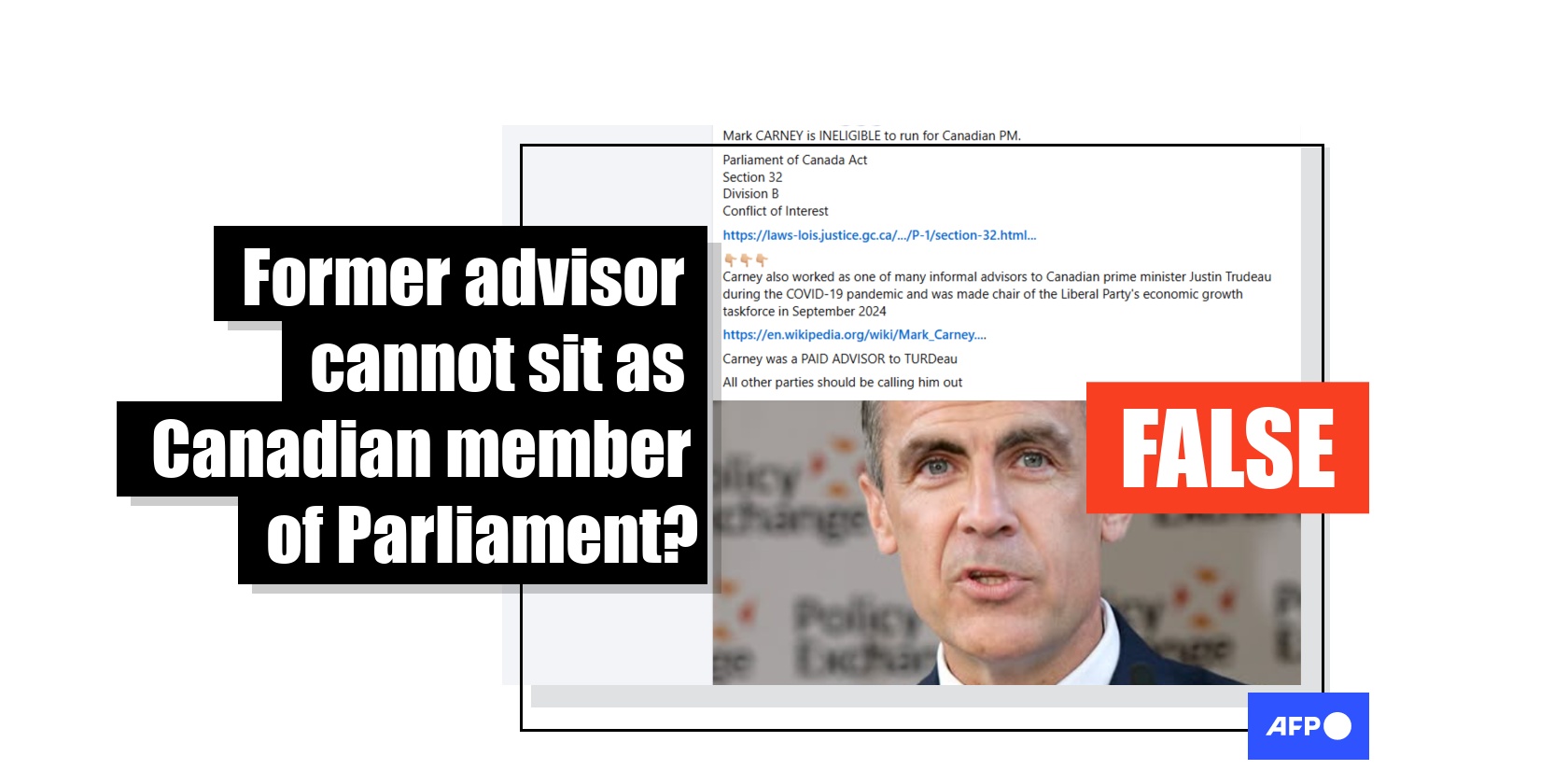
Canadian law does not make Mark Carney ineligible for office
- Published on April 16, 2025 at 17:11
- 2 min read
- By Gwen Roley, AFP Canada
"Mark CARNEY is INELIGIBLE to run for Canadian PM," an April 13, 2025 Facebook post claims. It points to Carney's previous service as an economic advisor to Justin Trudeau as the reason he is not eligible to be prime minister or sit as a member of Parliament (archived here).
Similar claims have circulated since at least the end of March on Facebook, Instagram and X, most of them referring to the Parliament of Canada Act's Section 32 (archived here).
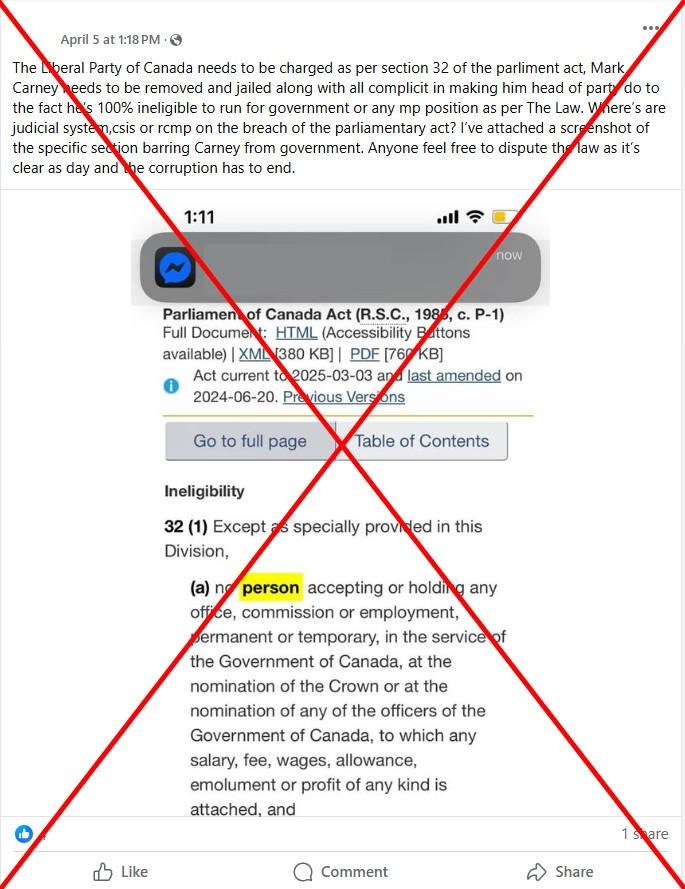
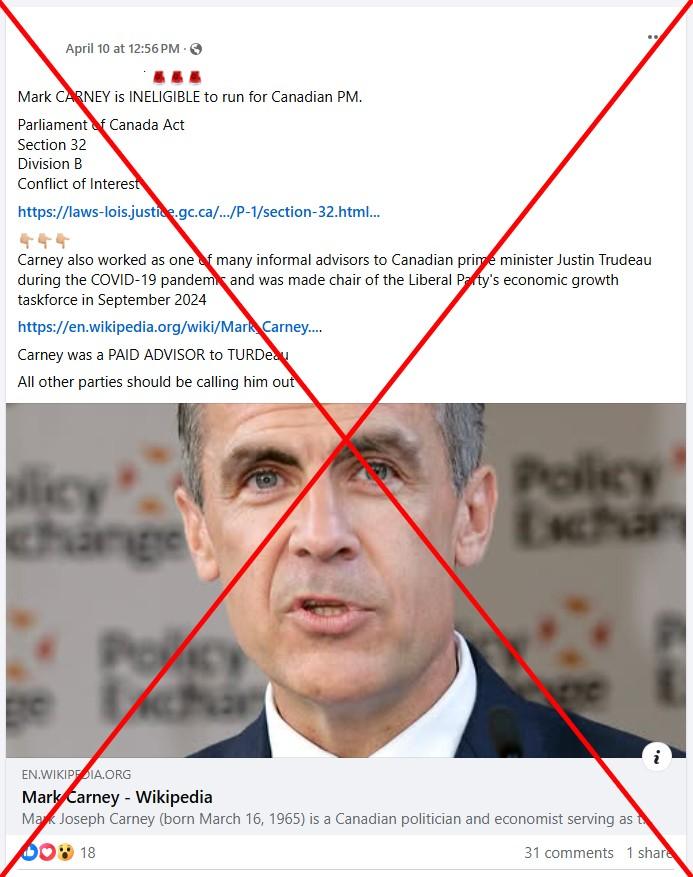
Carney became the prime minister on March 14 after winning the ruling Liberal Party's leadership race. Questions were raised about Carney's eligibility for the role since he does not have a seat in Parliament but this is permitted in the Westminster system Canada follows.
Days after his swearing in, Carney called a snap election for April 28. The prime minister is currently seeking a seat in the Nepean riding in the suburbs of Ottawa.
Since the start of the campaign, misinformation and manipulated media have targeted Carney, with experts telling AFP his economic background makes him an appealing subject for conspiracy theories
The claim that he is ineligible to be prime minister or run for Parliament is similarly incorrect.
Section 32 of the Parliament of Canada Act stipulates that no person holding a paid government position is eligible to be a member of the House of Commons -- as a means of preventing conflict of interest.
However, Philippe Lagassé, a Carleton University associate professor specializing in Canadian government (archived here), said the section referenced in the social media posts "only applies to those currently in the employ of the executive."
"That doesn't mean that someone who was previously employed by the executive can't be [a member of Parliament (MP)]," he said in an April 3 email to AFP. "They simply can't be both an MP and an employee of the executive at the same time."
Bruce Ryder, an associate professor at York University's Osgoode Hall Law School (archived here), agreed, saying it would stop applying to Carney after he had relinquished his previous advisory role.
He said in an interview on April 15 that the claims result "from a misreading of the law -- the provision of the Parliament of Canada Act -- and also, I think, a poor understanding of what amounts to a conflict."
Ryder also pointed out that Carney's most recent appointment was for the Liberal Party, rather than the government itself, and it was unclear whether he was compensated for any of his advisory positions.
Read more of AFP's reporting on misinformation around the Canadian election here.
Copyright © AFP 2017-2026. Any commercial use of this content requires a subscription. Click here to find out more.
Is there content that you would like AFP to fact-check? Get in touch.
Contact us
